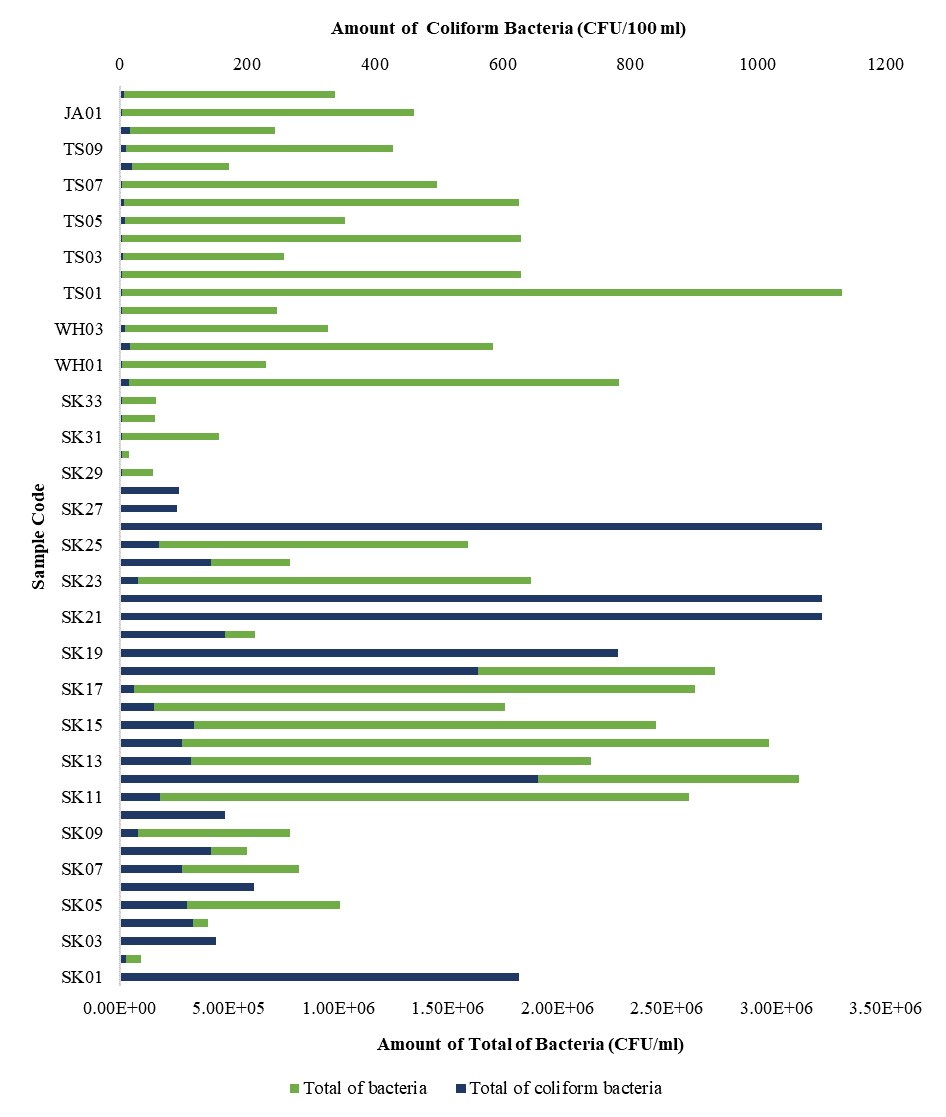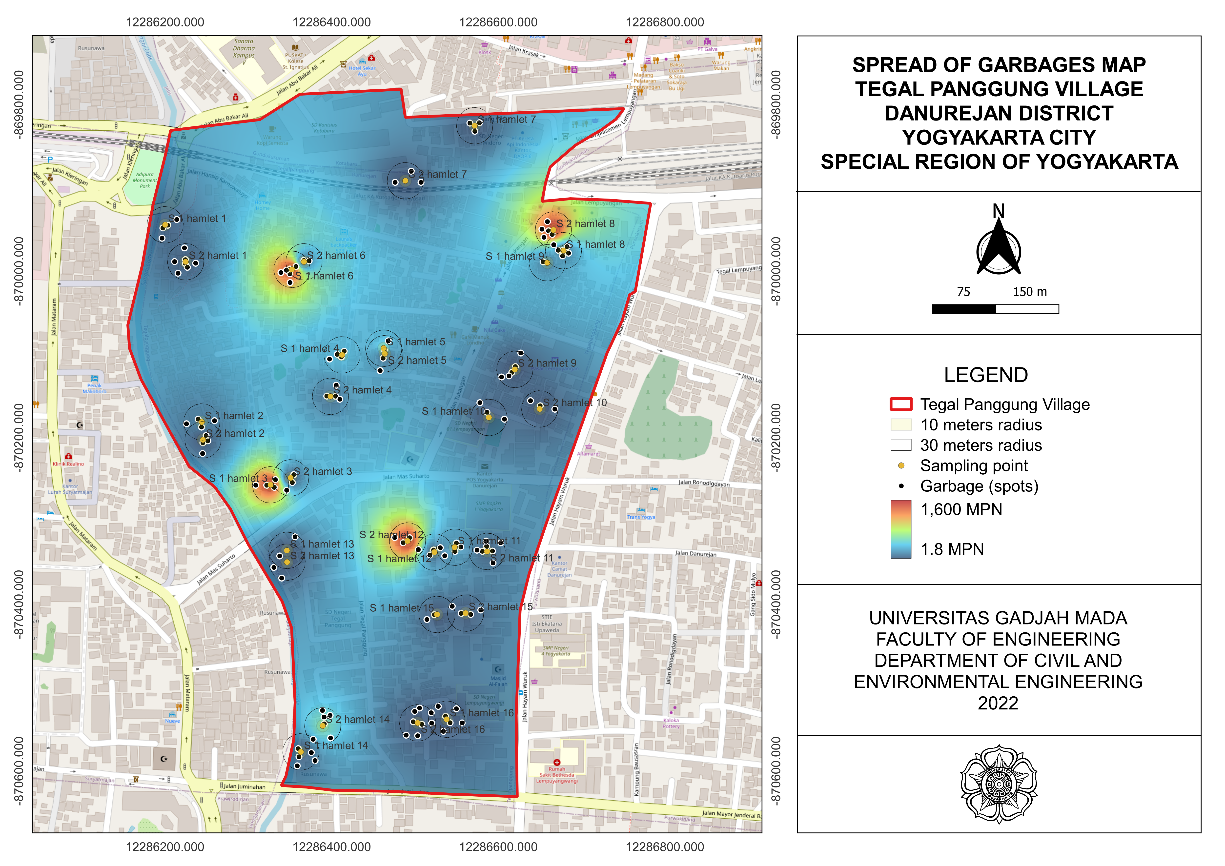Literature Review: Impact of Organophosphate Pesticide Exposure on Cholinesterase Enzyme Activity and Associated Risk Factors for Poisoning, 2017-2020

Introduction: Organophosphate pesticides, which are used to control pests of crops, affect the nervous system by inhibiting the activity of cholinesterase enzymes in the body. This can be achieved by inhaling, eating, or applying it to the skin. This study research aims to determine the level of pesticide exposure that can inhibit the activity of the Cholinesterase enzyme in the blood. This study employed a systematic literature review with library sources used through Google Scholar and Science Direct, resulting in 16 research articles discussing cholinesterase enzyme activity due to exposure to organophosphates discussed in 2017-2020. Discussion: The results of a previous study found that exposure to organophosphates significantly reduced cholinesterase enzyme activity by 50-80%. Testing for cholinesterase as a biomarker of exposure to Organophospate (OP) through acetylcholinesterase activity in red blood cells (AChE). This study explored the relationship between gender, age, knowledge of farmers, personal protective equipment, farmers' smoking behavior, and duration of spraying. Conclusion: Poisoning alters the activity of cholinesterase enzymes in the blood of farmers, resulting in acute and chronic health problems. Several factors have been found to correlate with organophosphate poisoning, including age, level of knowledge among farmers, use of personal protective equipment, smoking behavior, and duration of spraying activities.
Vutrianingsih NE, Zulfa I, Mukono J. Risk Factors Related to Carbamate and Organophosphate Pesticide Poisoning in Rice Farmers in Masangan Kulon Village Sidoarjo District. The Indonesian Journal of Public Health. 2020;15(2):190–200. https://doi.org/10.20473/ijph.v15i2.2020.190-200
Robb EL, Baker MB. Organophosphate Toxicity: StatPearls Publishing; 2023. https://www.ncbi.nlm.nih.gov/books/NBK470430/
Yoga SD, Harningsih T. Determination Of Cholinesterase Enzyme Levels in Farmers Using Organophosphate Pesticides Based On The Frequency Of Spraying. Journal of Pharmacy. 2020;9(2):21–25. https://doi.org/10.37013/jf.v9i2.106
Boedeker W, Watts M, Clausing P, Marquez E. The Global Distribution of Acute Unintentional Pesticide Poisoning: Estimations Based on a Systematic Review. BMC Public Health. 2020;20(1):1–19. https://doi.org/10.1186/s12889-020-09939-0
Marisa M, Pratuna ND. Analysis of Blood Cholinesterase Levels and Health Complaints in Kilometer Potato Farmers in Xi Sungai Penuh City. Perintis's Health Journal. 2018;5(1):122–128. https://doi.org/10.33653/jkp.v5i1.154
Benbrook CM. How did the US EPA and IARC Reach Diametrically Opposed Conclusions on the Genotoxicity of Glyphosate-Based Herbicides?. Environmental Science Europe. 2019;31(1):1–16. https://doi.org/10.1186/s12302-018-0184-7
Colovic MB, Krstic DZ, Lazarevic-Pasti TD, Bondzi AM, Vasic VM. Acetylcholinesterase Inhibitors: Pharmacology and Toxicology. Current Neuropharmacology. 2013;11(3):315–335. https://doi.org/10.2174/1570159X11311030006
Zhang L, Rana I, Shaffer RM, Taioli E, Sheppard L. Exposure to glyphosate-based herbicides and risk for non-Hodgkin lymphoma: A meta-analysis and supporting evidence. Mutatation Research-Review Mutatation Research. 2019;781:186–206. https://doi.org/10.1016/j.mrrev.2019.02.001
Kaur K, Kaur R. Occupational Pesticide Exposure, Impaired DNA Repair, and Diseases. Indian J Occup Environ Med. 2018;22(2):74–81. https://doi.org/10.4103/ijoem.IJOEM_45_18
Rahman DA, Zakianis Z, Fitria L. Pesticide Exposure, Behavior of Farmer, and Activity of Cholinesterase Enzyme in Blood of Fertile Women Farmers. National Public Health Journal. 2015;10(2):51–56. https://doi.org/10.21109/kesmas.v10i2.879
Fareed M, Kesavachandran CN, Bihari V, Kamal R, Kudus M. Oxidative Stress and Cholinesterase Depression among farm Workers Occupationally Exposed to Pesticides in India. Journal of Environment Biology. 2017;38(2):305–311. https://doi.org/10.22438/jeb/38/2/MS-188
Martin-Reina J, Casanova AG, Dahiri B, Fernández I, Fernández-Palacín A, Bautista J, et al. Adverse Health Effects in Women Farmers Indirectly Exposed to Pesticides. International Journal Environmental Research and Public Health. 2021;18(11):1–17. https://doi.org/10.3390/ijerph18115909
Sandra P, Sofiana KD, Sutejo IR. Correlation of Cholinesterase Levels to Lung Function in Farmer Exposed by Organophosphate Pesticides in Sukorambi Village, Jember Regency. Journal of Agromedicine and Medical Sciences. 2019;5(2):95–100. https://doi.org/10.19184/ams.v5i2.9651
Marcherya A. Acetylcholinesterase and Butyrylcholinesterase As Markers Of Pesticide Poisoning. Journal Agromedicine Unila . 2020;7(1):19–22. https://juke.kedokteran.unila.ac.id/index.php/agro/article/download/2775/pdf
James R, Reigart R. Recognition and Management of Pesticide Poisonings. Washington: United States Environmental Protection Agency (EPA); 2013. http://www2.epa.gov/pesticide-worker-safety
Ramdan IM, Candra KP, Purwanto H. Factors Associated with Cholinesterase Level of Spraying Workers Using Paraquat Herbicide at Oil Palm Plantation in East Kalimantan, Indonesia. Jurnal Kesehatan Lingkungan Indonesia. 2020;19(1):16-20. https://doi.org/10.14710/jkli.19.1.16-20
Afata TN, Mekonen S, Tucho GT. Evaluating the Level of Pesticides in the Blood of Small-Scale Farmers and Its Associated Risk Factors in Western Ethiopia. Sage Journal. 2021;15(1):1–13. https://doi.org/10.1177/11786302211043660
Marisa M, Arrasyid AS. Examination of Pesticide Levels in the Blood of Shallot Farmers in Nagari Alahan Panjang. Journal of Sainstek. 2017;9(1):14–18. https://doi.org/10.31958/js.v9i1.599
Siahaan S. Factors Associated with the Incidence of Pesticide Poisoning in Vegetable and Palawija Farmers in Selat Village, Pemayung District, Batang Hari Regency 2018. Jurnal Ilmiah Universitas Batanghari Jambi. 2020;20(3):1079–1085. https://doi.org/10.33087/jiubj.v20i3.1099
Halisa SN, Ningrum PT, Moelyaningrum AD. Analysis of Organophosphate Exposure to Cholinesterase Levels in Cauliflower Farmers in Tanjung Rejo Village, Jember Regency. Jurnal Kesehatan Lingkungan Indonesia. 2022;21(2):144–151. https://doi.org/10.14710/jkli.21.2.144-151
Ulva F, Rizyana NP, Rahmi A. Correlation between Knowledge Level and Symptoms of Pesticide Poisoning in Farmers Spraying Horticultural Plant Pesticide in Lembah Gumanti District, Solok Regency. Jurnal Ilmiah Universitas Batanghari Jambi. 2019;19(3):501–503. https://doi.org/10.33087/jiubj.v19i3.696
Santaweesuk S, Boonyakawee P, Siriwong W. Knowledge, Attitude and Practice of Pesticide Use and Serum Cholinesterase Levels Among Rice Farmers In Nakhon Nayok Province, Thailand. Journal of Health Resource. 2020;34(5):379–387. https://doi.org/10.1108/JHR-09-2019-0204
Gesesew HA, Woldemichael K, Massa D, Mwanri L. Farmers Knowledge, Attitudes, Practices and Health Problems Associated with Pesticide Use in Rural Irrigation Villages, Southwest Ethiopia. PLOS ONE. 2016;11(9):1–13. https://doi.org/10.1371/journal.pone.0162527
Mahyuni E. Risk Factors Use of Pesticides among Farmers in Berastagi Karo Regency 2014. Jurnal Fakultas Kesehatan Masyrakat. 2015;9(1):79–89. https://doi.org/10.12928/kesmas.v9i1.1554
Maruf MA, Azizah R, Sulistyorini L, Zakaria ZA, Marmaya NH, Pawitra AS, et al. Management of Organochlorine Exposure to Health Risks in Asia – A Review. Malaysian Journal of Medicine and Health Sciences. 2021;17(4):332–340. https://medic.upm.edu.my/upload/dokumen/2021100810073745_MJMHS_0960.pdf
Parasitekta A, Purwati, Harningsih T. The Effect Of Spraying Time On Cholinesterase Enzyme Levels In Farmers That Used Organophosphate. Jurnal Surya Medika. 2022;8(3):115–119. https://doi.org/10.33084/jsm.v8i3.3296
Hidayatullah T, Barliana MI, Pangaribuan B, Wijaya A, Sumiwi SA, Goenawan H. Relationship of Occupational Factors to Acetylcholinesterase Erythrocyte Activity and Cognitive Function in Farmers Using Organophosphate Pesticide. Indonesian Journal of Clinical Pharmacy. 2020;9(2):128–136. https://doi.org/10.15416/ijcp.2020.9.2.128
Budiawan AR. Risk Factor of Low Cholinesterase in Red Union Farmer. Jurnal Kesehatan Masyarakat. 2013;8(3):198–206. https://dx.doi.org/10.15294/kemas.v8i2.2822
Dantje S. Environment Toxicology. Yogyakarta: ANDI; 2015. https://webpac.lib.itb.ac.id/search/detail/119494
Istianah, Yuniastuti A. Relationship between Working Period, Spraying Time, Types of Pesticides, Use of PPE and Management of Pesticides with Poisoning Incidents in Farmers in Brebes Regency. Public Health Perspective Journal. 2017;2(2):117–123. https://journal.unnes.ac.id/nju/index.php/phpj/article/view/13581
Dhananjayan V, Ravichandran B. Occupational health risk of farmers exposed to pesticides in agricultural activities. Current Opinion in Environmental Science and Health. 2018;4(1):31–37. https://doi.org/10.1016/j.coesh.2018.07.005
Shammas, Masood A. Telomeres, lifestyle, cancer, and aging. Current Opinion Clinical Nutrition Metabolic Care. 2011;14(1):28–34. https://doi.org/10.1097/MCO.0b013e32834121b1
Sri W, Indratin, Asep NA. Prosiding Seminar Nasional Inovasi Pestisida Ramah Lingkungan Mendukung Swasembada Pangan Pati, 6-7 September 2017. Pati: Balai Penelitian dan Pengembangan Pertanian; 2017.
Susanto BH, Sholehhudin M, Pawitra AS. Analysis of Decreasing Hemoglobin Level at Vegetable Farmers in Exposure of Organophosphate Pesticide, Torongrejo Village, Junrejo Subdistrict, Batu City, Indonesia. Malaysian Journal of Medicine & Health Sciences. 2019;15(3):60–63. https://www.scopus.com/record/display.uri?eid=2-s2.0-85074483493&origin=resultslist
Pawitra AS, Diyanah KC, Latif MT, Susanto BH, Lusno MFD. Increased Thyroid Hormone Levels in Pesticide Sprayer at Agricultural Area. Jurnal Kesehatan Masyarakat. 2022;17(1):10–16. https://doi.org/10.21109/kesmas.v17i1.5487
Sari NK, Mastra N, Habibah N. Description of Cholinesterase Enzyme Levels in Blood in the Mekar Nadi Farmer Group, Batunya Village, Baturiti District. Meditory (The Journal of Medical Laboratory). 2018;6(2):108–115. https://doi.org/10.33992/m.v6i2.455

This work is licensed under a Creative Commons Attribution-NonCommercial-ShareAlike 4.0 International License.
1. Copyright of all journal manuscripts is held by the Jurnal Kesehatan Lingkungan.2. Formal legal provisions to access digital articles of electronic journal are subject to the provision of the Creative Commons Attribution-ShareAlike license (CC BY-NC-SA), which means that Jurnal Kesehatan Lingkungan is rightful to keep, transfer media/format, manage in the form of databases, maintain, and publish articles.
3. Published manuscripts both printed and electronic are open access for educational, research, and library purposes. Additionally, the editorial board is not responsible for any violations of copyright law.
JKESLING by UNAIR is licensed under a Creative Commons Attribution-ShareAlike 4.0 International License.







































